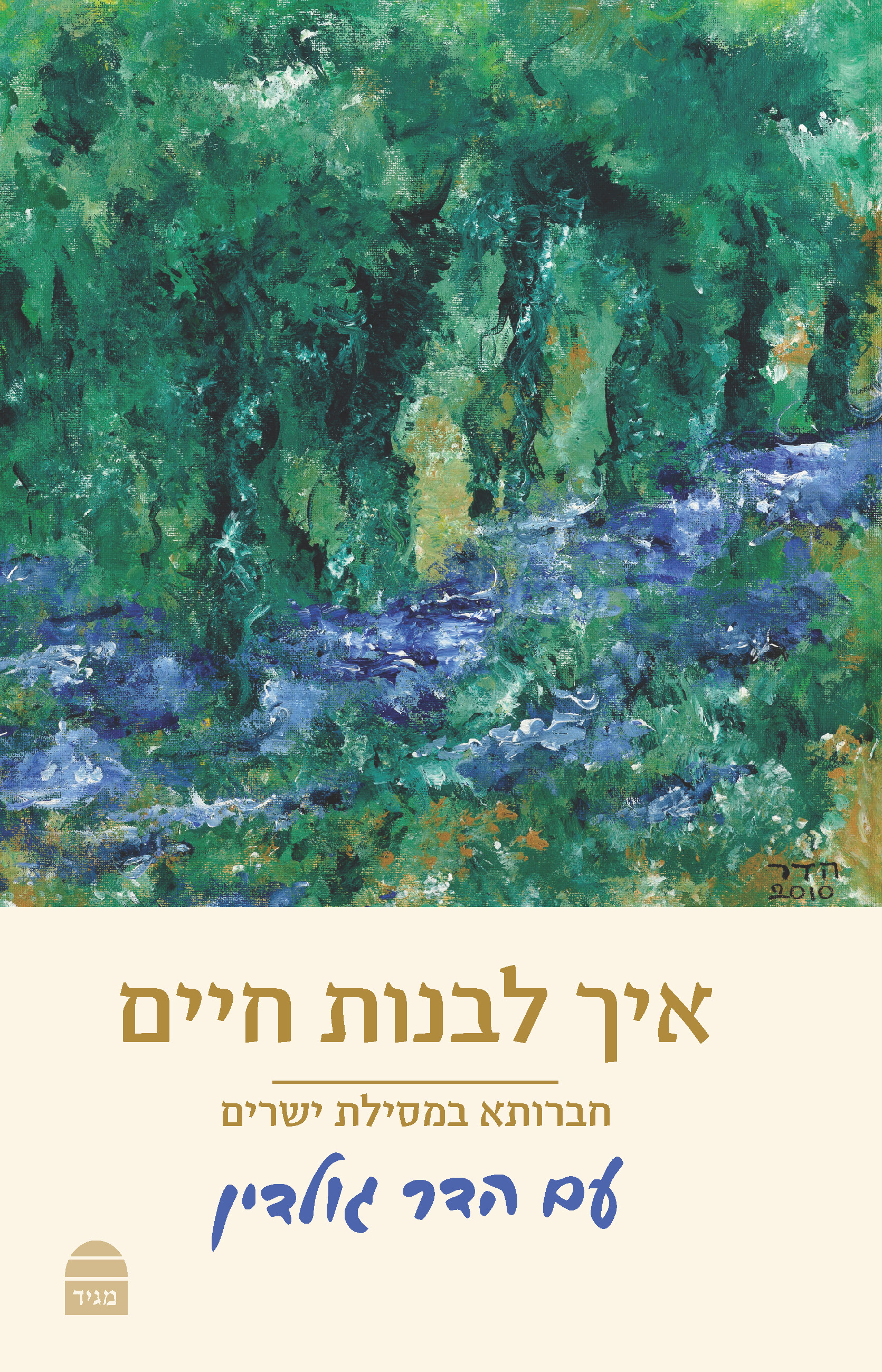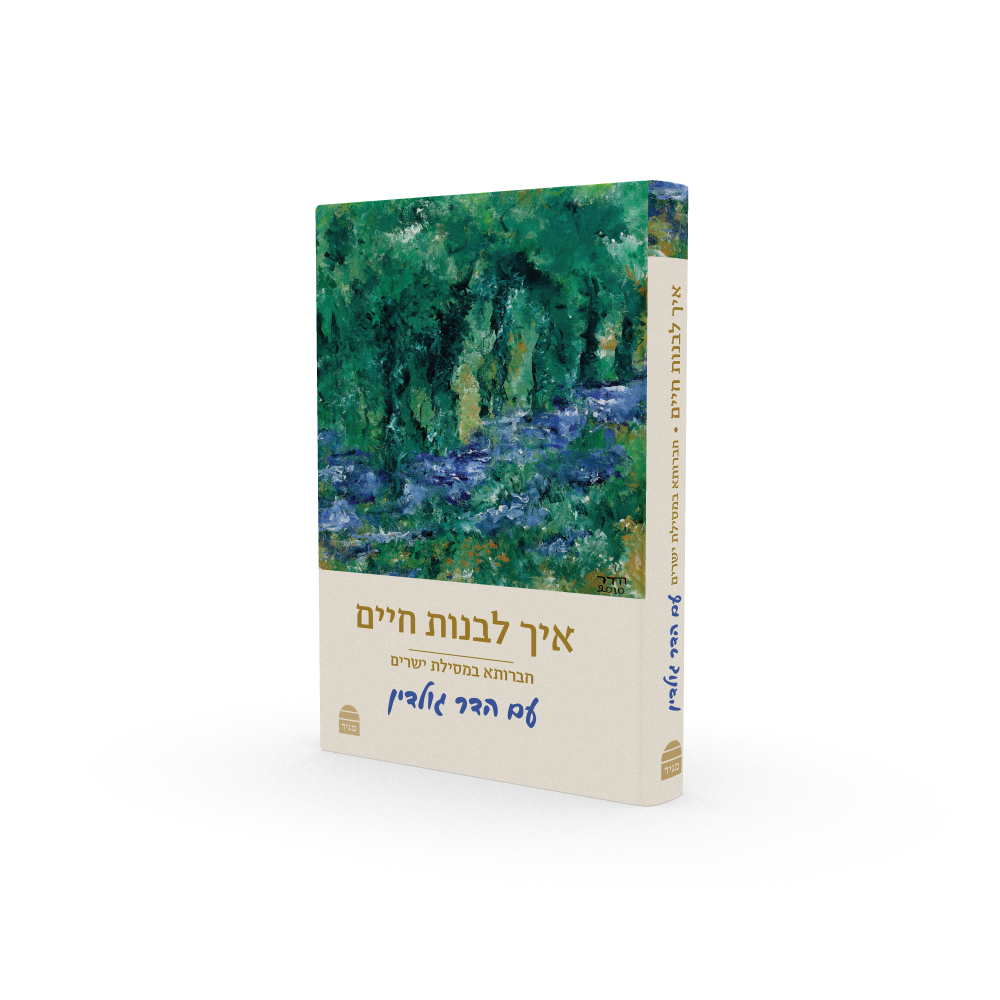"The Hardest Part Is Knowing Your Son Is Held by the Enemy and Your Country Doesn't Bring Him Back"
With ongoing talks involving Hamas and the frequent mention of Hadar Goldin and Oron Shaul, in a special interview, Professor Simcha Goldin, Hadar's father, discusses a tough conversation with his cousin, former Defense Minister Moshe (Bogie) Yaalon, not long after a kidnapping, their relentless yearning, and he reveals what Rabbi Kanievsky said about the book Hadar wrote and which was published posthumously.
 Simcha and Hadar Goldin
Simcha and Hadar Goldin"It's not for nothing they call it a void. It creates a chasm in you," states Professor Simcha Goldin in his deep voice at the start of our conversation, the pain evident on his face and in his trembling voice. Goldin (62), married to Leah and father of four, is a professor of medieval Jewish history at Tel Aviv University and heads the Center for Diaspora Research. He has spent decades studying Jews who lived in the diaspora, some of whom immigrated to Israel. Yet, despite his long struggle, he has not succeeded in returning his son Hadar, who was killed in Operation Protective Edge, to Israel.
"We studied together, loved doing the same things," continues Goldin, attempting to verbalize his pain. "He was addicted to reading books and could discuss any topic in the world. I miss him greatly. I try to fill this void with the help of my other children, but it's still not enough."
"The sad truth is," Goldin adds, "that even though we know he's dead, we haven't truly begun mourning him. Nor commemorating. We're still chasing after bringing him back to Israel. It's unlike anything else we've known."

An Enemy Holds the Void
The Goldin family's struggle to bring back their son Hadar's body, alongside the Shaul family's struggle for their son Oron, is highly publicized at a national level and touches the hearts of many in Israel. Yet, first and foremost, it is a private, almost personal battle of parents desperate to bestow last honors to their beloved son by bringing him to a Jewish burial.
Precisely because of the public nature of this prominent struggle, it's interesting and crucial to hear matters from a firsthand perspective, from the most personal and private point that appears in it, sparks it, and naturally affects its course and spirit.
"Shortly after what happened to Hadar in Gaza," Goldin says, "we met with the former Chief of Staff and then Defense Minister, Bogie Yaalon, who is also my cousin, with the Chief Rabbi of the IDF, Rabbi Rafi Peretz, and with Head of the Manpower Directorate, Orna Barbivai."
"After the conversation with them, in which certain things were clarified to us, we agreed to conduct a funeral for Hadar and bury parts of his body, as the state assured us of his return. However, unfortunately, the state did not fulfill its promise to us. The Prime Minister himself told us that any rebuilding of Gaza would be contingent on the return of the boys, and unfortunately, this has not happened. In our opinion, the Prime Minister is primarily responsible for the failure to bring Hadar and Oron to a Jewish burial."
In response to these harsh words, which emerge from the depths of Goldin's soul, the question naturally arises as to why, in his opinion, the boys have not been returned. Sensitive as he is, Goldin senses the question in the air and indeed begins to answer it. "To bring Hadar back, pressure needs to be applied on the enemy. Bibi released 1,027 terrorists to bring Gilad Shalit back. Unfortunately, to bring Hadar back, maybe they demand more."
"In any case, instead of applying the necessary pressure on the enemy, everyone is hiding behind empty statements. So I think there's a fundamental weakness in the leadership. This case tests its strength, especially as Hamas holds him, acknowledges this fact, and continues to keep him. Yes, Bibi is weak against Hamas. If he committed to us and the Shaul family that every upgrade and restoration of Gaza will be conditional on the return of the soldiers, then either he thinks it's not important, or he doesn’t want, or he’s weak."
"The truth is, in this context, I expect religious politicians and generals to act more vigorously on this matter. They simply have abandoned the mitzvah of bringing fallen soldiers to a Jewish burial. I expect everyone to act on this since it's commonplace in the IDF that no soldier is left behind, but the halachic obligation can add to those who adhere to it. Rabbi Goren, for example, took incredible steps to bring soldiers to a Jewish burial. Even non-religious individuals like Begin did remarkable things, yet Bibi has not."
"In Jewish law, one of the significant mitzvot is bringing fallen soldiers to a Jewish burial. It is also known as a true act of kindness. In the Tractate Megillah, it's said that only after the fallen of the Bar Kochba revolt were buried, the blessing of 'Hatov VeHameitiv' in the grace after meals was instituted. I believe, today, you cannot recite that blessing as long as we haven’t brought Hadar and Oron to a Jewish burial."
"The connection between burying the fallen and the blessing 'Hatov VeHameitiv', which speaks of sustenance and economy, the most basic things, is that as long as you haven't brought the fallen home, you can't truly enjoy even the most basic things. Here are two warriors the state sent to fight on the battlefield, and it couldn't bring them in the near time, nor later."
"Every father of a soldier knows it could happen to him," Goldin adds. "Yet even though you know, words cannot describe the feeling when it actually happens. The hardest part of the whole story is knowing the enemy holds your son, and your own country, which sent him to battle, does not bring him back. You know it's possible, but the enemy effectively wins."
"Without going into the details of how many and how, we know for sure there's a body held by the enemy. Hadar's body is held in Gaza by Hamas. This emerges from the report compiled after forensic means and as per the court's decision. Therefore, we don’t think Hadar is alive. But we desperately want to bring him home. It's been four years since Operation Protective Edge, and it’s extremely tough knowing that if properly acted, he could have been brought back long ago."

A Huge Compliment from Rabbi Kanievsky
One of the reasons for our conversation, beyond the frequent mention of the potential return of Goldin and Shaul as part of an agreement with Hamas, is the recent release of the book: "How to Build Life – *Havruta* in Mesillat Yesharim with Hadar Goldin". The book, published by Maggid, actually compiles writings on the book of the Ramchal, "Mesillat Yesharim", which Hadar wrote during his studies at the Aliyah Academy, compiled and edited emotionally.
"I want to start from the end, with the reactions," Goldin shares about the new book, to which he significantly contributed in its editing. "The reactions to the book caught us by surprise. There are quite a few groups that have started learning *Mesillat Yesharim* thanks to this book, and it delights us immensely. Beyond that, the book has been out for a short time, and it already grabbed attention remarkably. You'd assume mainly religious people would buy it, but even secular individuals are purchasing it in droves. In stores like Tzomet Sfarim and Steimatzky, it was snatched up. Apparently, it's because of Hadar's character and what's inside the book."
"Additionally, an incredibly touching event related to the book occurred during a visit to Rabbi Kanievsky's home. We very much wanted to reach him regarding the significant mitzvah of returning the fallen to a Jewish burial. It was crucial to us that he states it as a great mitzvah, so the ultra-Orthodox public would not remain indifferent. In our conversation with him, we showed him the book, and he was very impressed by it. He said it's quite special for a young man of such age to write such deep and wonderful things."
According to Goldin, who takes a deep breath before continuing to talk about his son, Hadar had several traits that led many to value him in life, even more so after his death. "Hadar exhibited a very special combination. He was a profound scholar, an artist, had a developed sense of humor, and was a fierce warrior."
"Hadar was an outstanding officer in the Givati Brigade, who completed the officers' course with distinction. He and his twin brother Tzur participated in the officer's course together, and throughout the course, they studied Tractate Berachot. When the course concluded, they held a very emotional ceremony marking the end of their study. This combination of a serious scholar with a unique sense of humor, a warrior, an artist, and more, created a character that many people learn about and from, wanting to know more and more."
And how did the new book come to life?
"We learned about the existence of the writings that eventually became the book during the Shabbat when Hadar was declared missing. His twin brother Tzur received them from Hadar's friends and brought them to us. When Hadar studied at the Aliyah Academy, between the ages of 18-20, he studied the book 'Mesillat Yesharim' intensely with Rabbi Eliezer Kashtiel."
"Hadar summarized the lessons Rabbi Kashtiel delivered, but he also wrote numerous comments inside the book. In fact, Hadar both distilled the idea of each and every paragraph and wrote down what he needed to do to reach the level studied in each lesson."
"Hadar didn't plan to publish what he wrote. He wrote it for himself. What's special about the book is that it offers the experience of a deep-thinking 19-year-old engaging with the writings of the Ramchal from centuries ago and planning how to build his life in light of the holy and great teachings in the book."
"When I first received Hadar's writings, I was immensely moved and impressed. Hadar's friends from Aliyah came during the Shiva and expressed their strong desire to publish the book. We also wanted to, but Hadar wrote these thoughts for himself, and we didn’t know if and how to publish them. We consulted Rabbi Kashtiel, and eventually decided to publish the writings and call the book: 'Havruta with Hadar Goldin'."
"I think this is the place to thank the Maggid and Koren Publishers who undertook this task. Indeed, the book appears as Hadar wrote it. Even in places where we expanded, it's based on his summaries from Rabbi Kashtiel's lessons."
"In the past half-year before the book's release, I spent a lot of time editing it and even studied it with Rabbi Dr. Yitzhak Lifshitz, a university researcher with me. Incidentally, the artwork on the book's cover is a painting that Hadar created. Hadar was a gifted artist, and we even organized exhibitions of his works in the past. Hadar was very loved and special, and we miss him very, very much."

